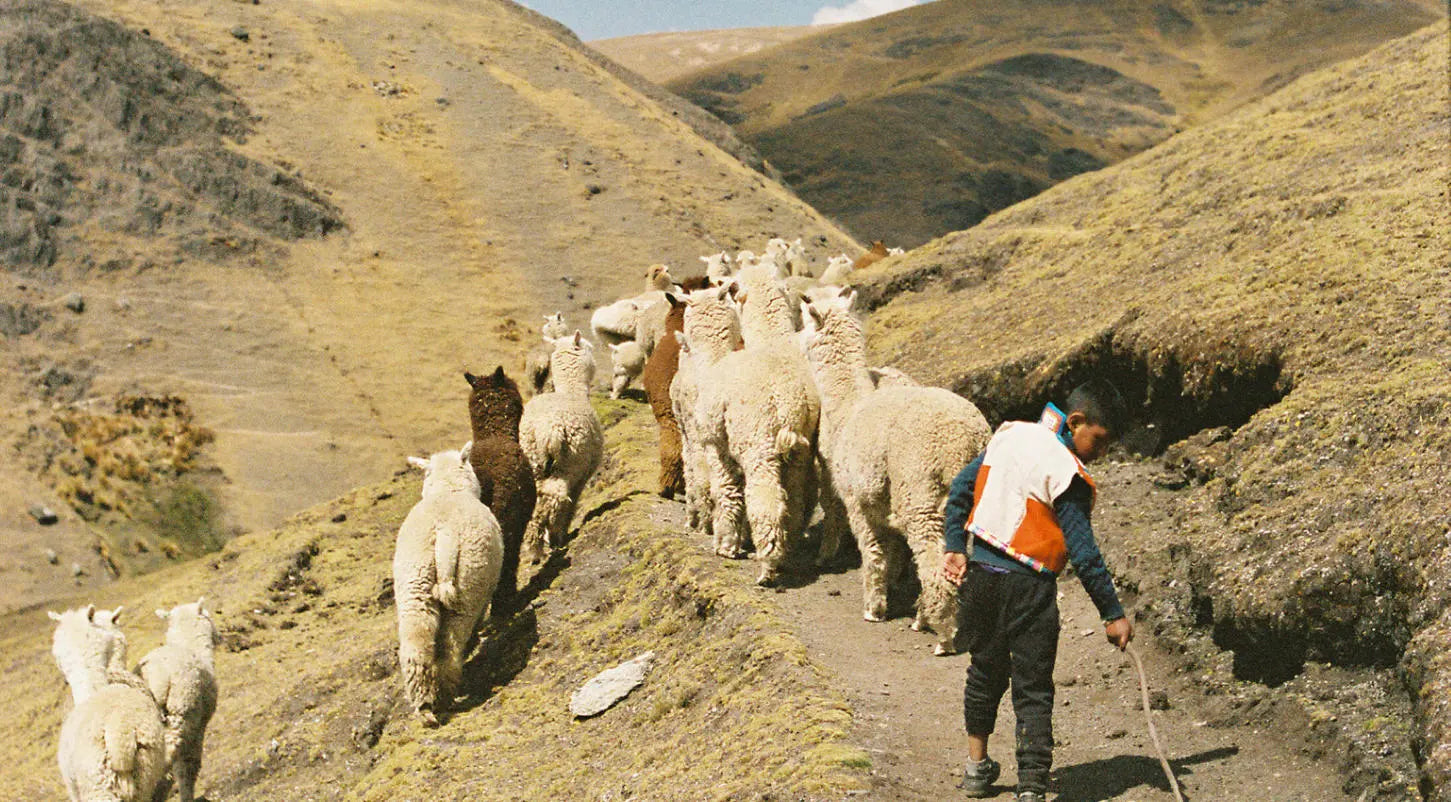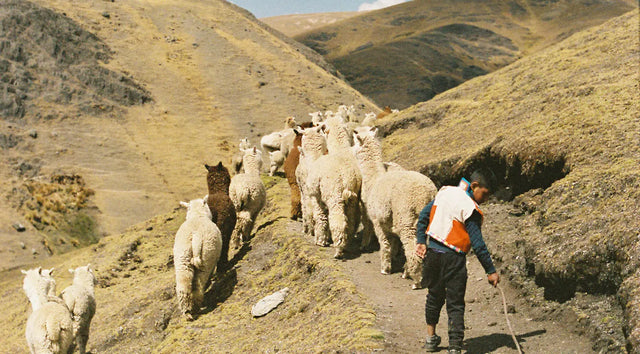Traceability from Sock to Sweater
It’s official: everything you order from us at Paka can now be traced back to its source, both the location and the person who actually made it. And we’re not just talking about our team tracing things behind the scenes. Now, you’ll start to see QR codes attached to products, taking you to the info with just a snap of your phone. But these codes are more than a fun detail—because being transparent and traceable is the very foundation of ethical shopping.




Not Just a Pin on a Map, But a Person
Even when we were starting out, we knew traceability was mission critical for Paka. Learning the reality of the process by following our fibers from start to finish was the foundation of trust we were unwilling to compromise on. And for a while, we did just that, tracking our clothing back to its hometown—a pin on a map. But we knew we could do better…
Today, we’ve gone beyond map pins and are connecting our products to the people who actually made them—the talented Alpaqueros (alpaca farmers) and Quechua Weavers. Why? To understand the real needs of locals who live in these locations. Because only then can we offer the most specific support possible. Coordinates are nice, but it’s through human-to-human conversations and respecting the unique subcultures throughout Peru that we can make the level of impact we hold ourselves to.
Recently, we began the process of building local greenhouses in Alpaquero communities, and this was no random choice. Residents explained the difficulties of growing nutrient-rich produce at high Andean elevation, requiring them to traverse the mountains into the lower-altitude regions, a difficult task for children and elderly alike. By working alongside local schools to teach students to tend the greenhouse vegetables, and even build more greenhouse going forward, we can provide genuine support with long-lasting benefits. And best of all, we did it together.




High Altitudes, High Standards
Of course, when it comes to making our products, there’s another key player involved, the alpacas themselves. And that’s where RAS (Responsible Alpaca Standard)
comes in—”a voluntary standard that requires all sites, from alpaca farms through to the seller in the final business-to-business transaction, to be certified. RAS farmers and ranchers are evaluated against animal welfare, land management, and social requirements set in the standard.”
Many if not most of the farmers we work with are already hitting the RAS standard, but need help with the actual certification process to make it official. This is another way that Paka is offering support for Alpaquero communities. By helping breeders and fiber suppliers become RAS official, it means they’re providing the best care for their herd, which helps them to sell more, which of course results in more income. It means caring for the land properly as well, which is already a traditional Alpaquera value. RAS certification is truly a win-win-win for everyone involved—and we’re more than happy to help make it happen by offering support and knowledge care as early in the process as possible.

How We Follow the Thread
How exactly do we manage to trace every single one of our products? Each batch of our Traceable Alpaca yarn comes with a unique code that stays connected to it through the entire process, from the alpaca herd to your closet. So long before a Paka package arrives at your doorstep, we push the manufacturer to provide us with the traceable information linked to the yarn’s code that went into your clothes.

Once we have all the deets, we make the hangtag. And each garment has its own. Because while two identical Paka styles will always have the same delightfully soft feel, the yarn that went into them may have started from two different Alpaqueros. But because these QR codes are linked to each lot of yarn, you’re empowered to know exactly where, and who. And in this way, you can feel connected to your clothing, and more importantly, the real human beings that made it.




